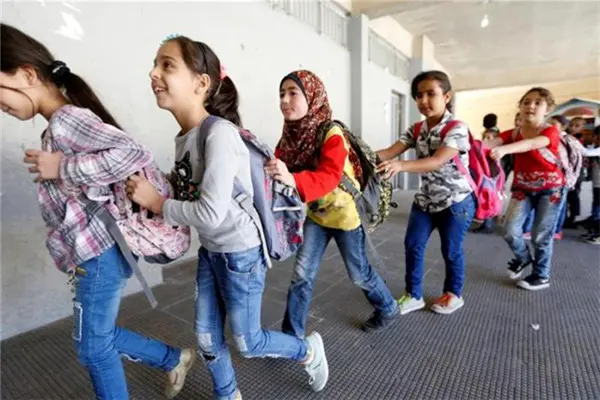Nearly 2,500 refugee children are currently attending public schools in Greece thanks to an educational program which was introduced early in October, Greek Minister of Education Costas Gavroglou stated on Thursday while speaking in parliament.
The plan making schooling available to refugee children stranded in Greece was introduced by the Greek government.
As most of the refugee children have never attended schools or have been out of education for more than two years, the plan aims to help the kids integrate into the local society.
According to the latest figures, Greek officials have set up 126 classes in 94 schools with 274 teachers have been hired to meet the needs of the 12 million-euro program which is co-funded by the European Union.
Despite sporadic protests and objections raised mostly by the far-right, Gavroglou reassured that the government will not step back on the matter of refugee children's education, according to Greek national news agency AMNA.
Under the government's plan, at least 10,000 children will attend classes in 150 schools all over Greece. The minister, however, admitted delays on Thursday, but pledged to step up efforts to admit more refugee children at Greek schools in coming months.
In addition to the Greek government's efforts, many NGOs in Greece run non-formal educational programs to help refugee children integrate into the official national education system.
UN refugee agency UNHCR along with the NGO "Save the Children" inaugurated on Thursday an educational space for refugee and migrant children in the Greek island of Leros in the southern Aegean Sea.
"Non-formal education allows to prepare for entering the formal education system be it in another European member state, in Greece or hopefully when conditions permit in their countries of origin. It also empowers them to participate in community life and is an indispensable tool for integration," UNHCR's Representative in Greece Philippe Leclerc said, according to an e-mailed press release.
The LEDU educational space has the capacity to accommodate about 80 students a day in three classrooms and an extra room for various activities.
Courses include Greek, English, mathematics, geography, computer and art, offered by Greek certified teachers and qualified staff of "Save the Children". Teachers include also members of the refugee community.
"Education is important for our life. School is important for everyone. We are all the same, boys and girls are the same, we should have the same rights, we are humans," said Homa, a 16-year-old girl from Afghanistan, who attends classes in LEDU.
(APD)
 简体中文
简体中文

